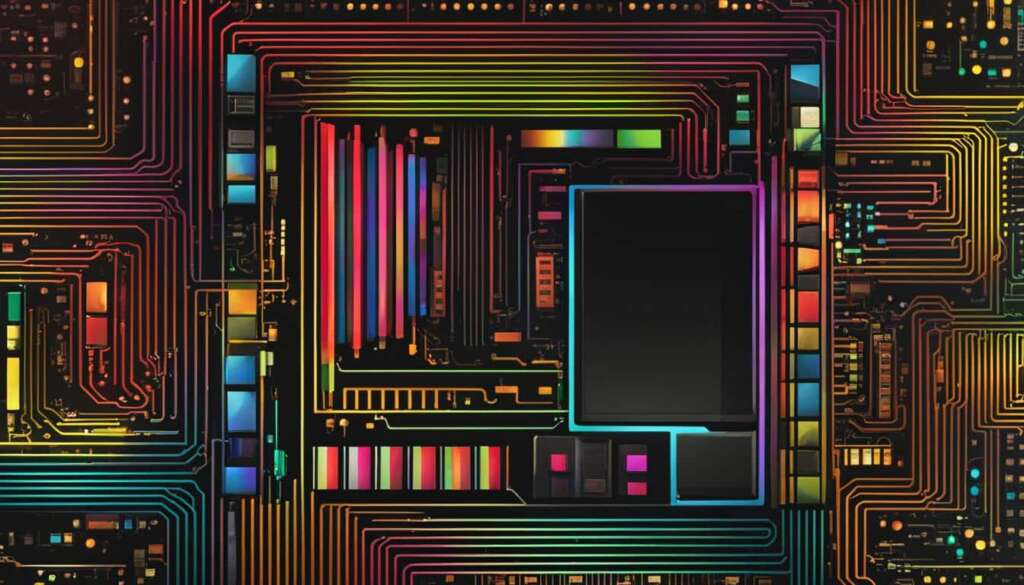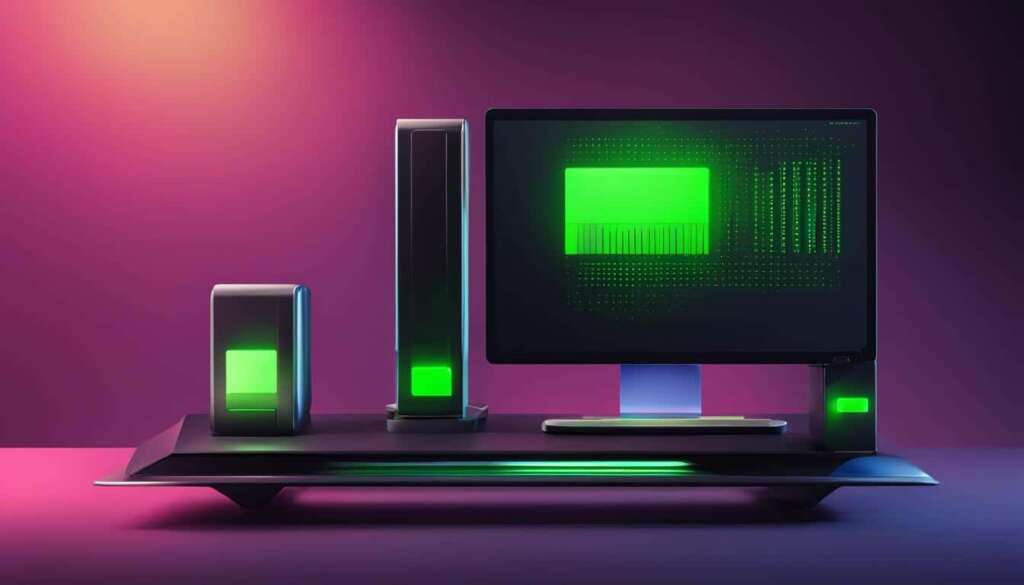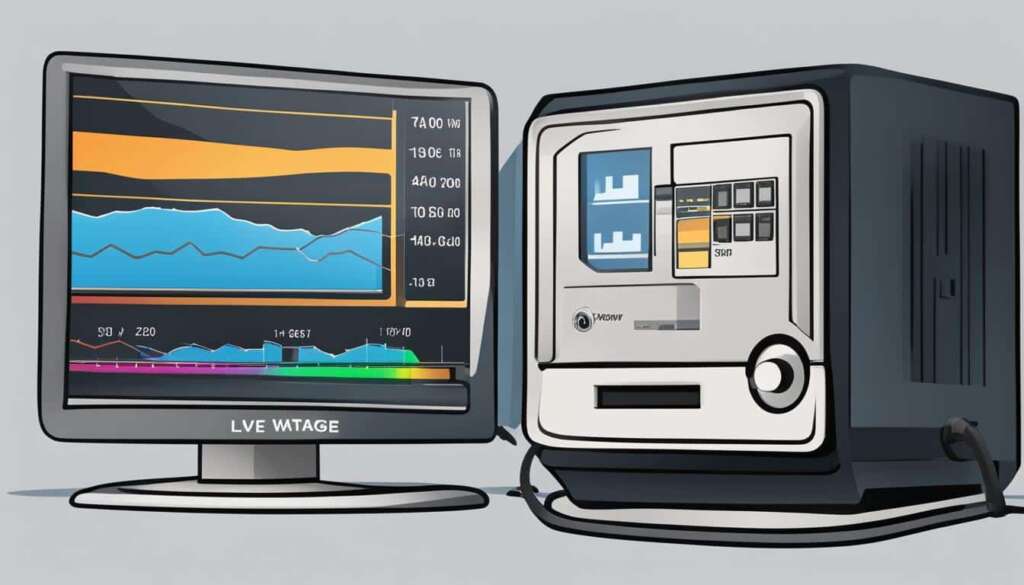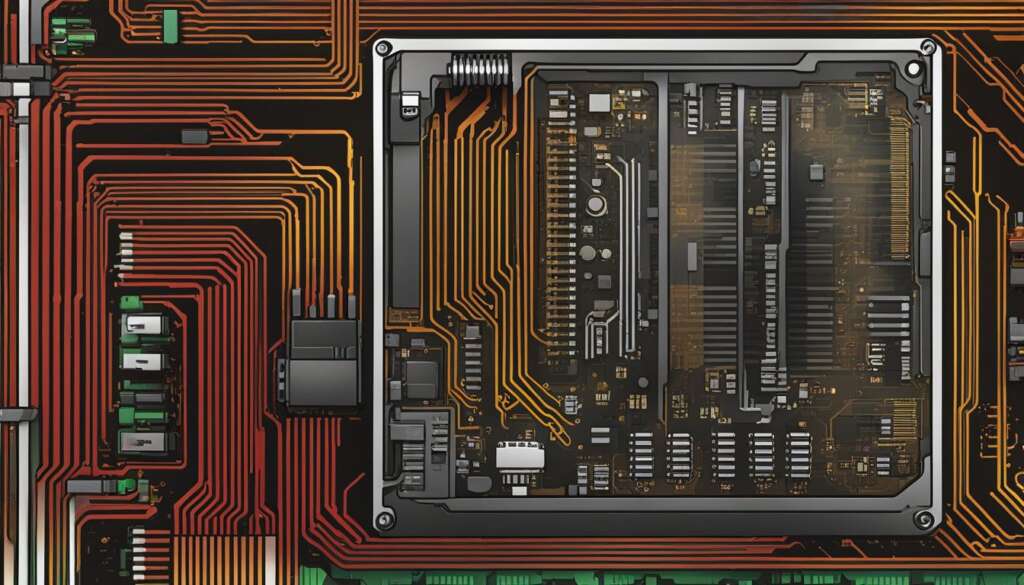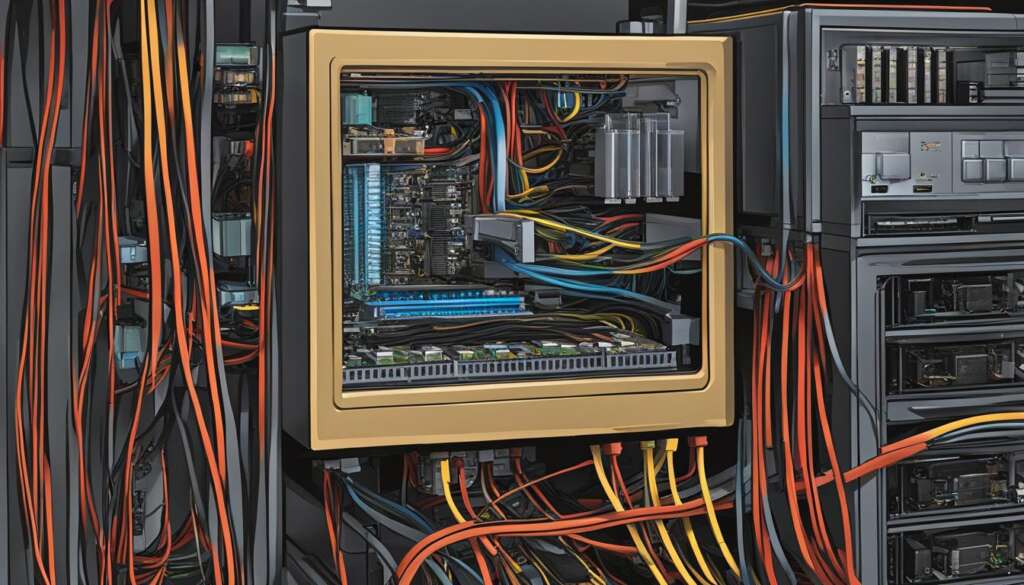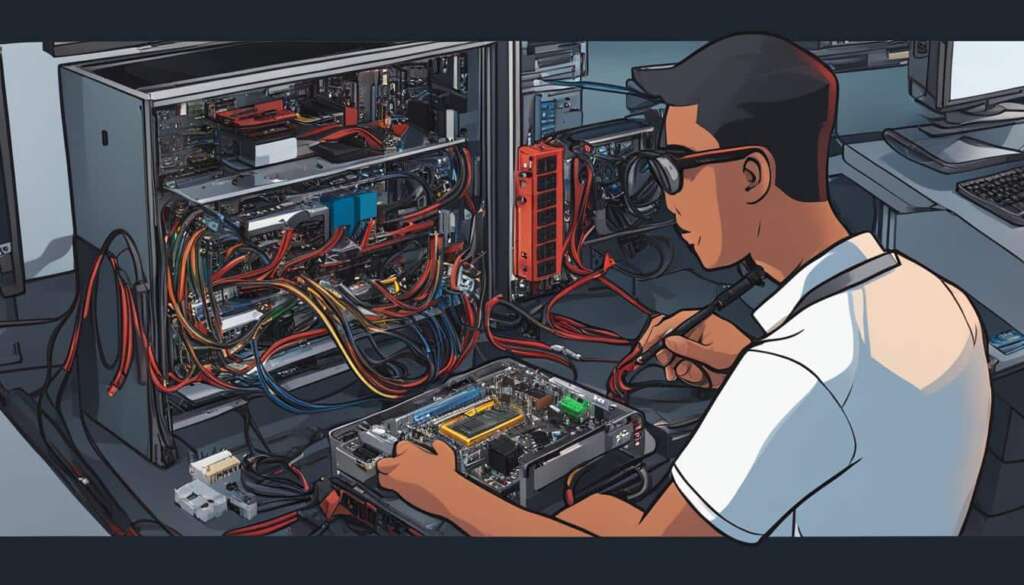Table of Contents
The OuterVision Power Supply Calculator is a trusted tool used by computer enthusiasts, PC hardware manufacturers, and power supply manufacturers worldwide. It provides the most accurate estimation of PC power consumption and helps users select the appropriate power supply unit (PSU) for their system.
Whether you’re building a gaming PC, a low-power media server, or a data center rack, this calculator has you covered. By accurately assessing your computer’s power needs, you can ensure optimal performance and avoid any issues caused by insufficient power supply.
Understanding your computer’s power consumption is crucial for achieving optimal performance. The power demand of different components, such as graphics cards and CPUs, can significantly impact the overall power draw of your system. By using the PC wattage calculator, you can make informed decisions about power supply compatibility and avoid overloading your system.
Make the most out of your computer’s performance potential by assessing its power needs with the PC wattage calculator. With accurate power consumption estimates, you can confidently select the right power supply unit for your computer and enjoy smooth, uninterrupted usage.
How to Measure PC Power Consumption
To accurately measure your PC’s power consumption, there are several effective methods available. One convenient option is to utilize an online calculator designed specifically for this purpose. The OuterVision Power Supply Calculator is a reliable tool that allows you to input your system’s components, overclocking details, and other relevant information to obtain an estimate of your PC’s daily power usage.
By using the OuterVision Power Supply Calculator, you can easily determine the power draw of your PC and ensure that your power supply unit (PSU) is optimized for your system’s needs. This online calculator takes into account various factors, including the specific components you have installed, to provide accurate results.
Alternatively, you can also choose to measure PC power consumption using hardware tools such as HWInfo or a hardware power meter. These tools provide real-time data on power usage and can be particularly useful for monitoring power fluctuations during different tasks, such as gaming or video rendering.
Regardless of the method you choose, accurately measuring your PC’s power consumption is essential for several reasons. It allows you to determine if your power supply is sufficient for your system’s requirements and ensures optimal performance without any power-related issues. Additionally, measuring power consumption can help you identify any power-hungry components that may be contributing to higher electricity bills or causing issues with your system’s stability.
To summarize, accurately measuring PC power consumption is achievable through the use of online calculators like the OuterVision Power Supply Calculator or hardware tools like HWInfo or hardware power meters. Investing time in this process enables you to optimize your system’s power requirements, leading to better performance and cost-efficiency
PC Wattage Calulator
Factors Affecting PC Power Consumption
Several factors contribute to the power consumption of a PC. Understanding these factors can help users optimize their systems for efficiency and performance. Let’s explore the key factors that influence PC power consumption:
Power-Demanding Components
The choice of components in a PC greatly impacts its power draw. High-performance graphics cards and CPUs are particularly power-demanding. These components require a significant amount of electricity to operate at their full potential. Brands like NVIDIA and AMD offer top-of-the-line graphics cards with exceptional performance, but they often come with higher power requirements.
For example, an NVIDIA GeForce RTX 3090, designed for extreme gaming and content creation, can consume up to 350 watts of power under heavy load. Similarly, Intel Core i9 processors, renowned for their powerful processing capabilities, can have a TDP (Thermal Design Power) of over 100 watts.
When building or upgrading a PC, it’s essential to consider the power requirements of these components. Failure to provide sufficient power can result in performance issues or system instability. On the other hand, overspending on an excessively powerful power supply can be wasteful, both financially and environmentally.
Overclocking Settings
Overclocking refers to the practice of running computer components at higher speeds than their default settings. While overclocking can yield performance improvements, it simultaneously increases power consumption. CPUs and GPUs, in particular, can consume significantly more power when overclocked.
Overclocking raises the voltage and clock speeds of these components, leading to increased power draw and heat generation. It’s essential to be mindful of the power requirements when overclocking to ensure stability and avoid system overheating. Popular overclocking tools, like MSI Afterburner and NTC’s NVCleanstall, provide user-friendly interfaces for adjusting settings and monitoring power levels.
GPU Load and CPU Load
PC power consumption also varies based on the workload placed on the graphics processing unit (GPU) and central processing unit (CPU). Intensive tasks such as gaming, video editing, and 3D rendering push these components to their limits, resulting in higher power consumption.
GPU load is measured by monitoring the graphics card’s utilization and memory usage. Tools like MSI Afterburner and HWiNFO provide real-time information on GPU load, allowing users to evaluate power draw during different operations.
CPU load, on the other hand, represents the amount of work the processor is handling. Applications that require extensive computation or multitasking can put a strain on the CPU and increase power consumption. Task Manager in Windows and Activity Monitor in macOS are useful tools for monitoring CPU load.
PSU Recommendations
Choosing the right power supply unit (PSU) is crucial for meeting the power demands of a PC. PSU manufacturers often provide detailed specifications and recommendations for different configurations. It’s important to follow these recommendations to ensure optimal performance and stability.
The PSU’s wattage rating should match or exceed the combined power requirements of all installed components, accounting for overclocking and future upgrades. Additionally, considering PSU efficiency ratings, such as the 80 Plus certification, can help reduce energy wastage and keep electricity costs in check.
| Component | Power Consumption (Watts) |
|---|---|
| CPU | 90 |
| GPU | 200 |
| Memory | 20 |
| Storage | 10 |
The table above provides a sample power consumption breakdown for different components in a typical PC setup. Keep in mind that these values are approximate and can vary based on specific models and usage scenarios.
Importance of Assessing PC Power Needs
Understanding your PC’s power needs is crucial for making informed decisions about future upgrades. When considering upgrading your computer’s components, such as installing a high-end graphics card, it’s essential to take into account the power consumption of these new additions. While these powerful graphics cards can deliver impressive visuals and enhance your gaming or multimedia experience, they often require a significant amount of power to operate optimally.
By assessing your system’s power consumption, you can ensure that your power supply unit (PSU) is capable of meeting the demands of your upgraded components. This analysis will help you avoid overloading your PSU, which could lead to unstable performance or even system failures. It’s essential to know the power requirements of your existing components and any potential additions to ensure compatibility and optimal performance.
Planning for future upgrades becomes much smoother when you have an accurate understanding of your PC’s power needs. By factoring in the power consumption of prospective components, you can identify any potential bottlenecks or limitations in your current system. This knowledge empowers you to make the right choices, such as selecting a more powerful PSU or adjusting other system components to maintain optimal performance.
In summary, assessing your PC’s power needs is not only crucial for the present but also for future upgrades. By understanding the graphics card power consumption and other components’ power demands, you can ensure compatibility, avoid overloading your power supply, and achieve optimal performance for your system.
FAQ
How accurate is the OuterVision Power Supply Calculator?
The OuterVision Power Supply Calculator is a trusted tool used by computer enthusiasts, PC hardware manufacturers, and power supply manufacturers worldwide. It provides the most accurate estimation of PC power consumption.
Who can benefit from using the OuterVision Power Supply Calculator?
The OuterVision Power Supply Calculator is beneficial for computer enthusiasts, PC hardware manufacturers, and power supply manufacturers who need to determine the appropriate power supply unit (PSU) for a system.
What factors does the calculator take into account?
The calculator takes into account various factors such as the components, overclocking, and energy cost to provide recommendations for the best power supply based on efficiency, price, and overall energy cost.
Can this calculator be used for any type of PC build?
Yes, whether you’re building a gaming PC, a low-power media server, or a data center rack, the OuterVision Power Supply Calculator can be used to estimate power consumption and select the appropriate power supply unit.
How do I measure my PC’s power consumption?
One convenient option is to use an online calculator like the OuterVision Power Supply Calculator. Simply input your system’s components, overclocking details, and other relevant information to get a rough idea of its daily power usage.
What factors influence PC power consumption?
Several factors can influence PC power consumption. Power-demanding components like high-performance graphics cards and CPUs can significantly increase power draw. Overclocking these components can further amplify their power requirements.
Why is it important to assess PC power needs?
Understanding your PC’s power needs is crucial for making informed decisions about future upgrades. High-end graphics cards, while delivering impressive visuals, often consume significant power. By assessing your system’s power consumption, you can make well-informed choices to ensure compatibility and avoid overloading your power supply.

